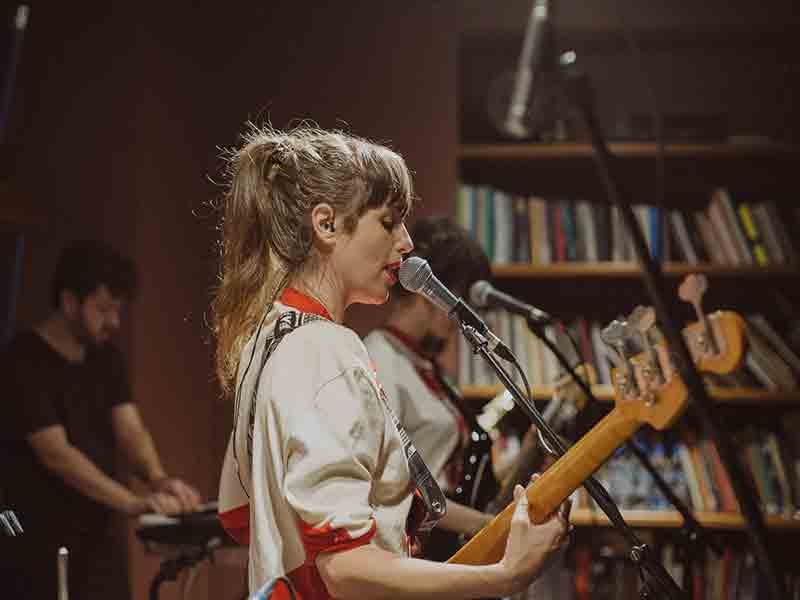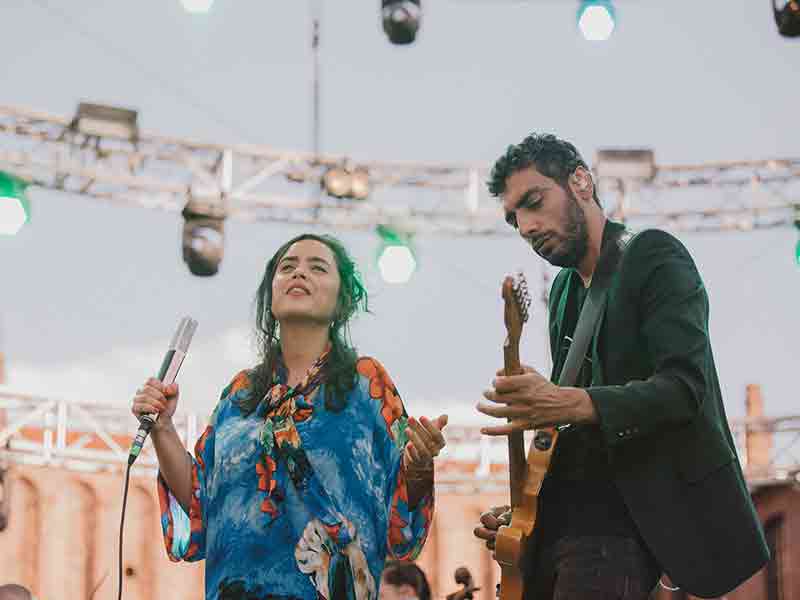The Krakow Jewish Culture Festival brings Jewish culture from Israel and the Diaspora to the city, in the form of concerts, workshops, lectures and exhibits, but the annual festival is much more than a random collection of entertainment and happenings.
‘A generation of Poles grew up with programmed amnesia about anything Jewish’
The festival is a never-ending educational process for Poles who are dealing with their painful history, said the festival’s director, Janusz Makuch, via Skype from Krakow. Half of the six million Jews murdered during the Holocaust died in Poland.
“The festival is not about the joy, the music – it’s about our identity. We are dealing with history through the festival. The festival questions who we are and where we are and where we want to go,” Makuch said. He added that an open discussion about Polish guilt is taking place in the media and online.
In the late 1960s, Poland’s communist government went on a campaign to erase all aspects of Jewish religious and cultural life in Poland, and most of the Jews living there left the country. A generation of Poles grew up with “ ‘programmed amnesia’ about anything Jewish,” the festival’s deputy director, Robert Gadek, wrote in an email.
‘Poland is on one hand, a large Jewish cemetery, but on the other hand, is once again the land where people want to be Jewish…are proud to be Jewish’
The inaugural Jewish Culture Festival aimed to remind Poles about the Jewish contributions to Polish heritage. It was held in 1988, when the grip of communism was weakening. Then an underground event consisting of lectures and films that was attended by some 150 people, the festival was supposed to be a one-time affair. But after the collapse of communism in 1989, a representative of the Polish ministry of culture contacted Makuch to offer support for the festival. With the Polish government and other sponsors behind it, the festival will celebrate its 30th anniversary in 2018.
READ: BRINGING JEWISH CULTURE BACK TO POLAND
The festival this past June attracted about 33,000 people to Kazimierz, Krakow’s Jewish quarter, for some 200 events over nine days. Jerusalem was the focus of more than a dozen presentations, ranging from a lecture on “Jerusalem vs Tel Aviv Syndrome,” to workshops on Shabbat in Jerusalem, featuring food, music and stories.
Dozens of musicians played at this year’s festival. Among them were Shye Ben Tzur and the Rajasthan Express, a band that performs Sufi devotional music with lyrics in Hebrew and Urdu, and Neta Elkayam, who sings the hit songs of the Jewish singer Zohra al-Fassia, a star in Morocco in the early 20th century. This year’s lineup also included the popular Israeli rocker DuduTassa, who combines rock and Iraqi music with Middle Eastern rhythms.
Makuch’s passion for Jewish culture has its roots in studies he undertook when he was 14, after meeting a writer, Michal Strzemski, in his hometown of Pulawy, Poland.
“He asked me a question about the Jews. I had never heard the word ‘Jews,’ ” Makuch said.
“He told me half the population of my hometown had been Jewish people. I was shocked. He taught me a lot.”
Makuch, 57, moved to Krakow in 1980, where he explored Judaism, attending services at the Tempel Synagogue. “Even though I wasn’t Jewish, they allowed me to be in the synagogue, they allowed me to pray with them,” he said.
While he was a student at the city’s Jagallonian University, Makuch met a group of young people who shared his enthusiasm for Jewish culture. They created their own yeshiva, studying Hebrew and Yiddish, and began observing Shabbat and Jewish holidays.

Around 1987, Makuch and his friend, Krzysztof Gierat, who’s now the director of the Krakow Film Festival, wanted to do something in connection with Jewish culture and out of that desire, the Krakow Jewish Culture Festival was born.
Since then, the movement to revive Jewish culture has spread across Poland. More than 40 Jewish cultural festivals have sprung up in Polish cities and towns. A major Jewish festival in Warsaw, called Singer’s Warsaw, was founded in 2004 and is held annually in late summer.
The Singer’s festival is named after Polish-Jewish writer Isaac Bashevis Singer, who grew up in Warsaw’s Jewish quarter.
“We are witnessing now the process of repair of Jewish life and Jewish culture in Poland,” Makuch said.
“Poland is on one hand, a large Jewish cemetery, but on the other hand, is once again the land where people want to be Jewish, where people are proud to be Jewish, where people are not afraid to be Jewish.”
